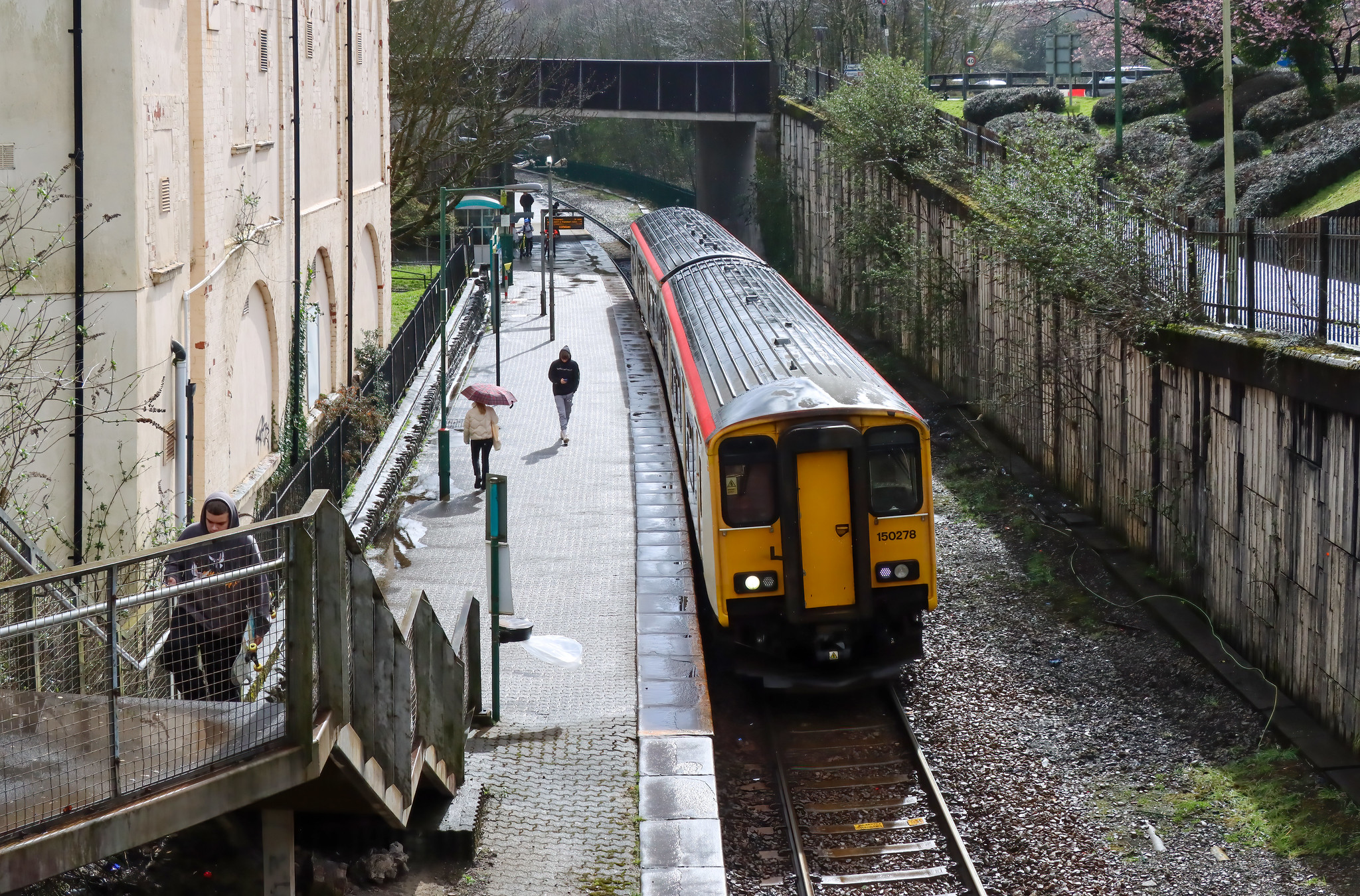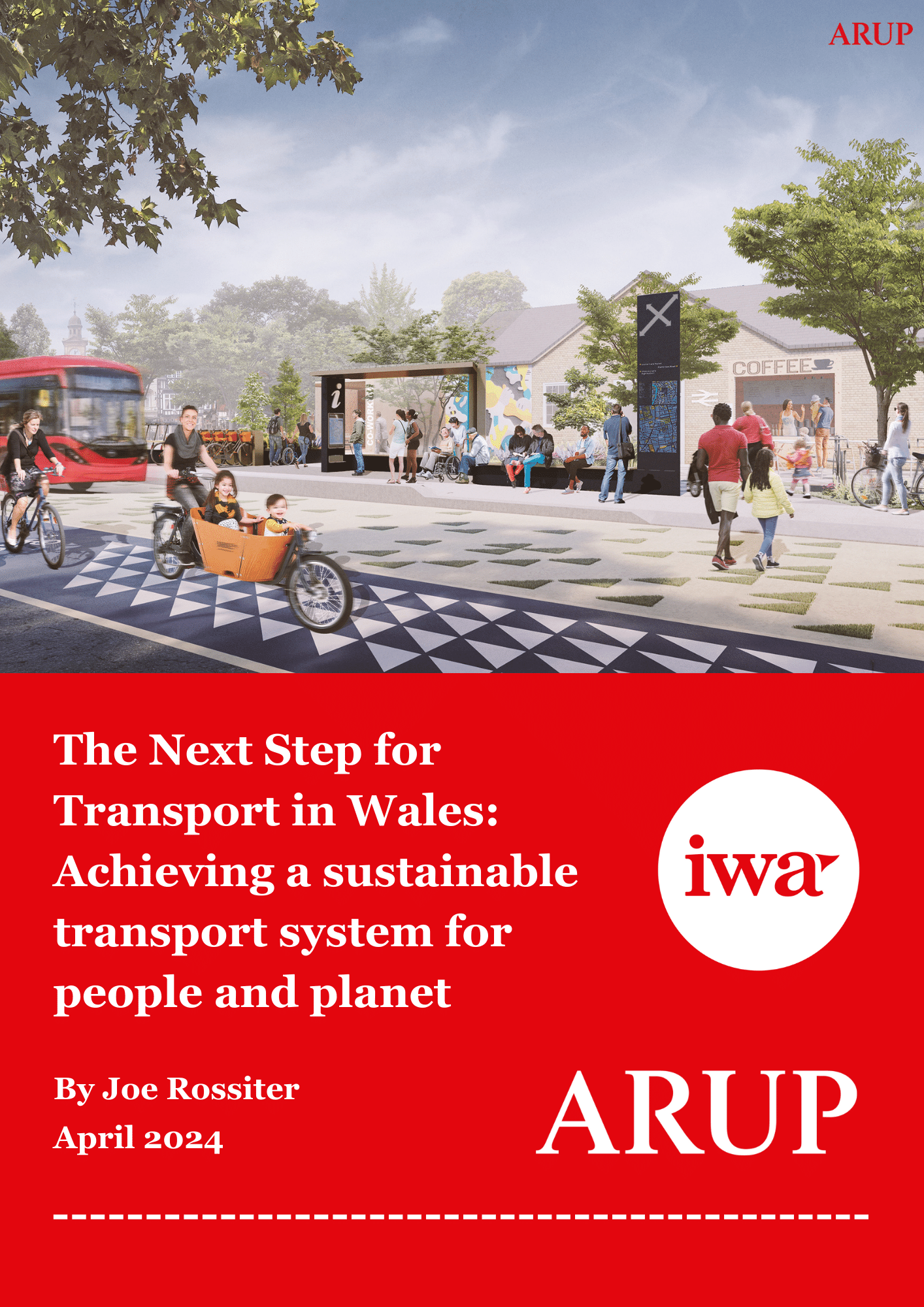
This paper is based on the second in a series of roundtable discussions organised by the IWA in partnership with ARUP.
Our new report, The Next Step for Transport in Wales, written by Co-Director Joe Rossiter, recommends a deliberative approach to sustainable transport, developed in partnership with communities.
Wales needs a future-proof transport system to face up to the realities of climate change, but Welsh Government is faced with a complex set of challenges: encouraging take-up of electric vehicles (EV) and charging infrastructure, financing adequate public transport service provision and inducing behavioural change amidst a divided public opinion are some of the tasks awaiting decision-makers for the next decade.
To do this, Welsh Government must adopt an integrated approach to transport, that ties the benefits of a mixed transport system to public health and embeds decisions about transport in guiding the planning of communities.

This process will need to bring in a swathe of agents, from communities, to decision-makers and employers. It must consider the distinctions between urban and rural communities and involve Local Authorities and the emerging Corporate Joint Committees (CJCs) in this effort.
In this paper, we discuss the merits of investment in sustainable public transport and decarbonising car usage to target Wales’ car-dependency and poor air quality.
Transport can be the inhibitor or enabler of a more equal nation. Currently, a lack of access to sustainable transport locks communities out of opportunities and exacerbates regional inequalities. By targeting investment into enabling communities with reliable, affordable, accessible and sustainable transport, the Welsh Government can bring economic benefits to communities and improve living standards.
With new leadership in Wales and looming general elections, we make the following recommendations:
- Welsh Government should consider policy benefits to encourage a behavioural change and get communities on board with its decisions
- Invest in behavioural change
- Explore democratic mechanisms to provide pathways for change
- Buses – deliver a network with public benefit at its heart
- Continue the positive policy direction on transport – supporting a broad consideration of value when appraising transport projects at all levels
- Set stronger targets to direct transport delivery outcomes
- Undertake robust data collection that fits policy ambitions
- Establish best practice for employers to support sustainable transport modes in their organisation
- Accelerate the transition to transport oriented development at all levels of government
- Invest in public sector training initiatives
- Utilise the CJC process to maximise regional decision making on transport
Read the full report here.
Read our previous report in partnership with ARUP, Wales, The Journey to Net Zero: Tackling climate mitigation through accelerated infrastructure investment.
Robust debate and agenda-setting research.
Support Wales’ leading independent think tank.

